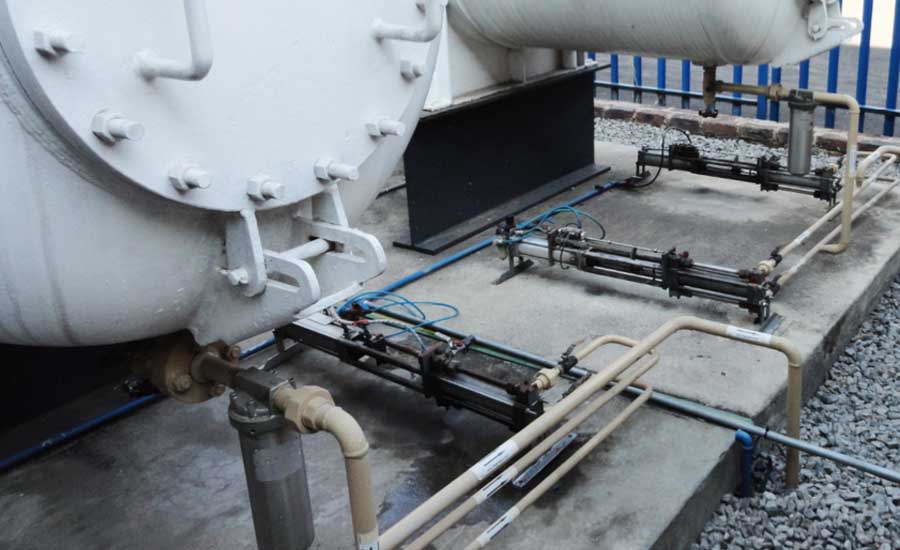Many polystyrene factories continue to use liquefied petroleum gas (LPG) pumps utilizing Vesconite piston-rod bushings. These bush and wipers help to clean the shaft and keep the contaminants out of the pump.

The bushings are used in Mevaco pumps, which supply butane from the butane bulk tanks to the machine that manufactures the polystyrene.
Butane is one of the blowing agents that can be used in the production of expanded polystyrene. The gas is used to make beads of polystyrene expand to produce the foam that is eventually formed into polystyrene drinking cups, plates, picnic coolers and flotation devices, among other items.
Vesconite Piston-Rod Busings in Liquefied Petroleum Gas Pumps
Vesconite piston-rod bushings came to be used in LPG pump manufacturer Mevaco pumps after several other materials, including porous bronze, graphite, carbon and glass-filled polytetrafluoroethylene and nylon, were tested and found unsuitable.
Because of priming difficulties when pumping a liquid above its boiling point, and the fact that the liquid is a perfect solvent for most lubricants, LPG pumps are often run absolutely dry.
“During use, especially when disconnecting hoses, liquid boils off in the pump and the freezing effect causes moisture to condense,” said former owner Gerrie Meyer.
Various alternative materials were chosen for the components, but none proved long-lasting under adverse conditions except Vesconite, which has a lifespan ten times that of bronze, does not swell unlike nylon, and is self lubricating.
“Many users of Mevaco pumps have marvelled at the ‘mysterious’ grey material used for these parts, and I am convinced that the resulting acquaintance with Vesconite has been responsible for far more use of it by various establishments than the modest quantity used in my pumps,” said Meyer.
Mevaco Pty continues to use Vesconite in piston-rod bushings and composite piston discs in its LPG pumps.
The company has manufactured more than 1,500 LPG pumps. The pumps that are in use at present have a life span of two to six years, with the longevity of the pump dependent on when the seals become unviable.
Current owner, Max Viljoen recently said “There are pumps that have been running for 28 years where maintenance has been correctly administered and seals replaced.”
Pump components must be able to withstand the typical liquid and gas temperatures of butane or propane. At atmospheric pressure, butane boils at approximately -1°C (30°F). Since Vesconite is suited to temperatures ranging from -40°C (-40°F) to 65°C (150°F), Vesconite is suitable for this low temperature application and will not degrade or become brittle at this gas’ boiling point or at its typical liquid-phase temperature.
Besides being able to operate at low temperatures, Vesconite has a long-wear life that is superior to other materials, including nylon and bronze.
Alternative products also generally require large clearances because of temperature changes that can occur when the gas changes phase as a result of disconnecting hoses. Vesconite, in contrast, can operate with small clearances.
The original article can be found on Vesconite's website here.
For more information about Vesconite, contact Gallagher Fluid Seals.
